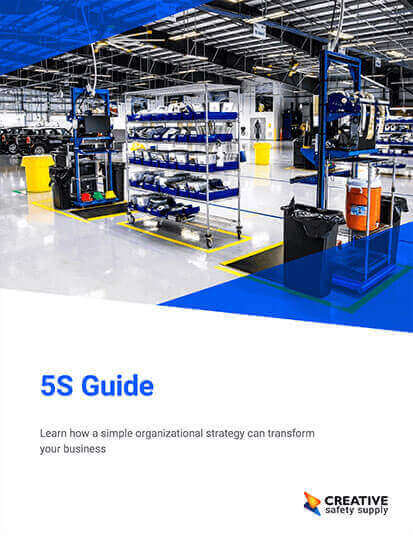
When looking through each of the five main areas of focus for 5S, most people wouldn’t think that ‘shitsuke’ (translated as sustain) would be the hardest to successfully implement. The fact is, however, that more companies fail to have a successful 5S system in place because of this S than any other.
Businesses often get excited when starting a new improvement strategy, which can really help to get the ball rolling. Unfortunately, many companies tend to jump from one strategy or trend to another, without really staying focused. This is fine for some things that really only need to be done once, but with 5S, it is necessary to commit for the long term. The following are some key ways that you can make sure your business is able to have a sustained, successful, implementation of 5S.
Don’t Start Without Full Buy In
The most important thing that needs to be done when starting a 5S system is to get full buy in from all key members of the company. This must include the executive managers and other upper management because without their support, the system will absolutely fail over time. Even the front line and middle managers, however, should be on board for the long term implementation. While getting their support may be hard at first, many businesses are able to achieve it by having them attend classes or seminars, which can illustrate why 5S is such a good thing for the company, and the employees.
Measure for Success
Most companies are great at getting new systems started, but then can lose focus. One of the best ways to ensure you are able to sustain the project is by being able to show just how successful it is. This is done by taking measurements before, and after, any changes are made. This will allow the team that made the changes to show both managers and employees what they did, and how it is benefiting everyone on the team. These concrete examples will help to ensure everyone is willing to keep focusing on 5S.
Celebrate All Achievements
Another important thing to do is celebrate all the accomplishments that are made through the 5S strategies. For example, if a the 5S team identified an issue that was causing a defect in 2% of products produced, and made the necessary changes to drastically reduce, or even eliminate, that particular defect, everyone should be made aware. By eliminating the wasted products that either needed to be disposed of, or reworked, will save everyone time and money. 5S doesn’t just benefit the company, but the employees too, so make sure to get everyone involved in the celebrations.
Similar Questions
- How do I implement 5S in my organization?
- Where do I start with 5S?
- Why does 5S fail sometimes?
- Is 5S different from kaizen?
- How does 5S help the business to grow?
- Where can 5S be used?
- How can 5S be used in different industries?
- Is there a difference between 5S and Six Sigma?
- Who should implement 5S?

